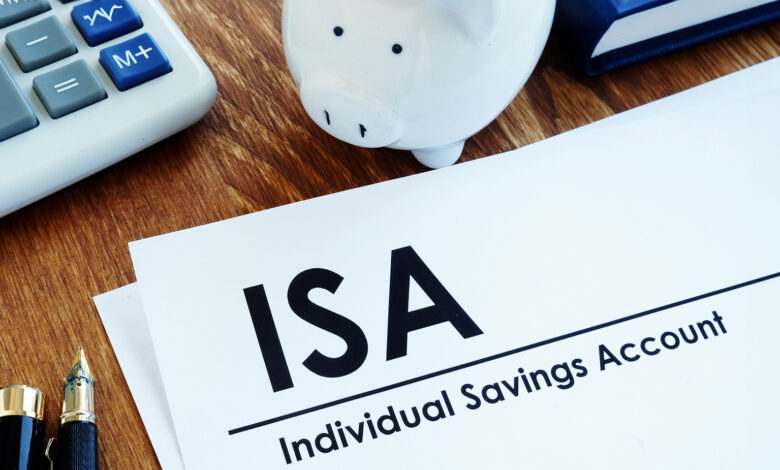What is an Individual Savings Account (ISA)?

An Individual Savings Account (ISA) is a tax-free savings and investment product approved by the UK Government. It allows you to save or invest money without paying tax on the interest, dividends, or capital gains earned within the account.
ISAs are a simple means of building tax-free savings—perfect for long-term planning, putting down a deposit on a property, or growing an investment portfolio.
Important ISA Features
- Tax-free income: No capital gains tax or income tax on funds earned within the ISA.
- Annual limit: In the 2024/25 tax year, you can save up to £20,000 across all your ISAs.
- Flexible choices: You can choose between cash savings, investments, or a combination of both.
- One of each form, each year: You may contribute to only one of each type of ISA per tax year (e.g., one Cash ISA, one Stocks and Shares ISA, etc.).
Types of Individual Savings Accounts (ISAs)
1. Cash ISA
A tax-free savings account that functions like a traditional bank account. Ideal for cautious savers.
- Available as easy-access or fixed-term
- Covered by the Financial Services Compensation Scheme (FSCS) up to £85,000
- Can be transferred between providers without losing tax-free benefits
2. Stocks and Shares ISA
Allows you to invest in a variety of investment products such as shares, bonds, and funds. Suitable for long-term savers.
- Carries higher risk than Cash ISAs
- Offers potential for greater returns
- May include management or platform fees
3. Innovative Finance ISA (IFISA)
Lets you lend money through peer-to-peer (P2P) lending platforms to individuals or businesses.
- Higher return potential but also higher risk
- Not protected by the FSCS
- Must be offered by FCA-regulated P2P platforms
4. Lifetime ISA (LISA)
Designed for people aged 18 to 39, this ISA supports first-home purchases or retirement saving.
- Annual contribution limit: £4,000 (counts toward £20,000 total ISA limit)
- 25% government bonus (up to £1,000/year)
- Withdrawal penalty applies unless used for retirement, first home, or in the case of terminal illness
5. Junior ISA
Savings account for children under 18. Funds become accessible to the child at age 18.
- Annual limit: £9,000 (2024/25)
- Available as Cash or Stocks and Shares
- Must be opened by a parent or guardian, though anyone can contribute
Who Can Open an ISA?
To be eligible, you must:
- Be a UK resident (or a Crown servant working abroad)
- Be 16 or older for a Cash ISA
- Be 18 or older for a Stocks and Shares ISA, IFISA, or Lifetime ISA
- Have a National Insurance number
You cannot open an ISA in joint names or for someone else (except for Junior ISAs).
ISA Contribution Rules and Transfers
- The £20,000 annual allowance can be split among different ISA types.
- You may transfer your ISA to a different provider at any time, but always request an official transfer to keep your tax-free status.
- Unused allowance cannot be rolled over—it resets with each tax year.
Benefits of Having an ISA
- No tax on returns: Your savings grow faster without tax deductions.
- Easy access: Some ISAs allow immediate withdrawals; others reward long-term saving.
- Flexible investment options: Especially with Stocks and Shares ISAs.
- Government bonuses: Lifetime ISAs include a 25% annual bonus.
Restrictions to Note
- Contribution limits: The annual allowance restricts how much you can save tax-free.
- Withdrawal penalties: May apply, particularly with Lifetime ISAs.
- Investment risk: Applies to Stocks and Shares ISAs and IFISAs.
- One ISA per type per year: You can only contribute to one of each ISA type annually.
ISA vs Other Savings Options
| Feature | ISA | Regular Savings Account |
| Tax-Free Returns | ✅ Yes | ❌ No (beyond personal savings allowance) |
| Annual Limit | £20,000 (combined total) | No fixed limit |
| FSCS Protection | ✅ Yes (Cash ISAs) | ✅ Yes |
| Investment Option | ✅ Stocks & Shares ISA | ❌ Typically not available |
| Government Bonus | ✅ Lifetime ISA (25%) | ❌ None |
Frequently Asked Questions (FAQs) About ISAs
What is an ISA?
An ISA (Individual Savings Account) is a tax-free savings or investment account available to UK residents.
Can I have more than one ISA?
Yes, you can have multiple ISAs, but you may only pay into one of each type in a single tax year.
What if I save over my ISA allowance?
Any contributions above the annual allowance may be taxed and penalised. HMRC will contact you to resolve the issue.
Are ISAs safe?
Cash ISAs are protected up to £85,000 per institution by the FSCS. Stocks and Shares ISAs carry investment risk and are not FSCS-protected for investment loss.
Can I withdraw cash from an ISA?
Yes, though restrictions and penalties may apply depending on the type (e.g., Lifetime ISAs and fixed-rate ISAs).
Is interest earned on an ISA taxable?
No. All interest, dividends, and capital gains earned within an ISA are completely tax-free.
Can I transfer my ISA to a different provider?
Yes. To retain tax-free status, use an official ISA transfer process rather than withdrawing and redepositing funds manually.
Final Thoughts
ISAs continue to be a reliable and tax-efficient way for UK residents to grow their savings and investments. Whether you prefer guaranteed returns through a Cash ISA or want to build long-term wealth with a Stocks and Shares ISA, there’s a suitable option for everyone. Reviewing your choices annually helps you make the most of your £20,000 allowance and take advantage of new offers or rules.


